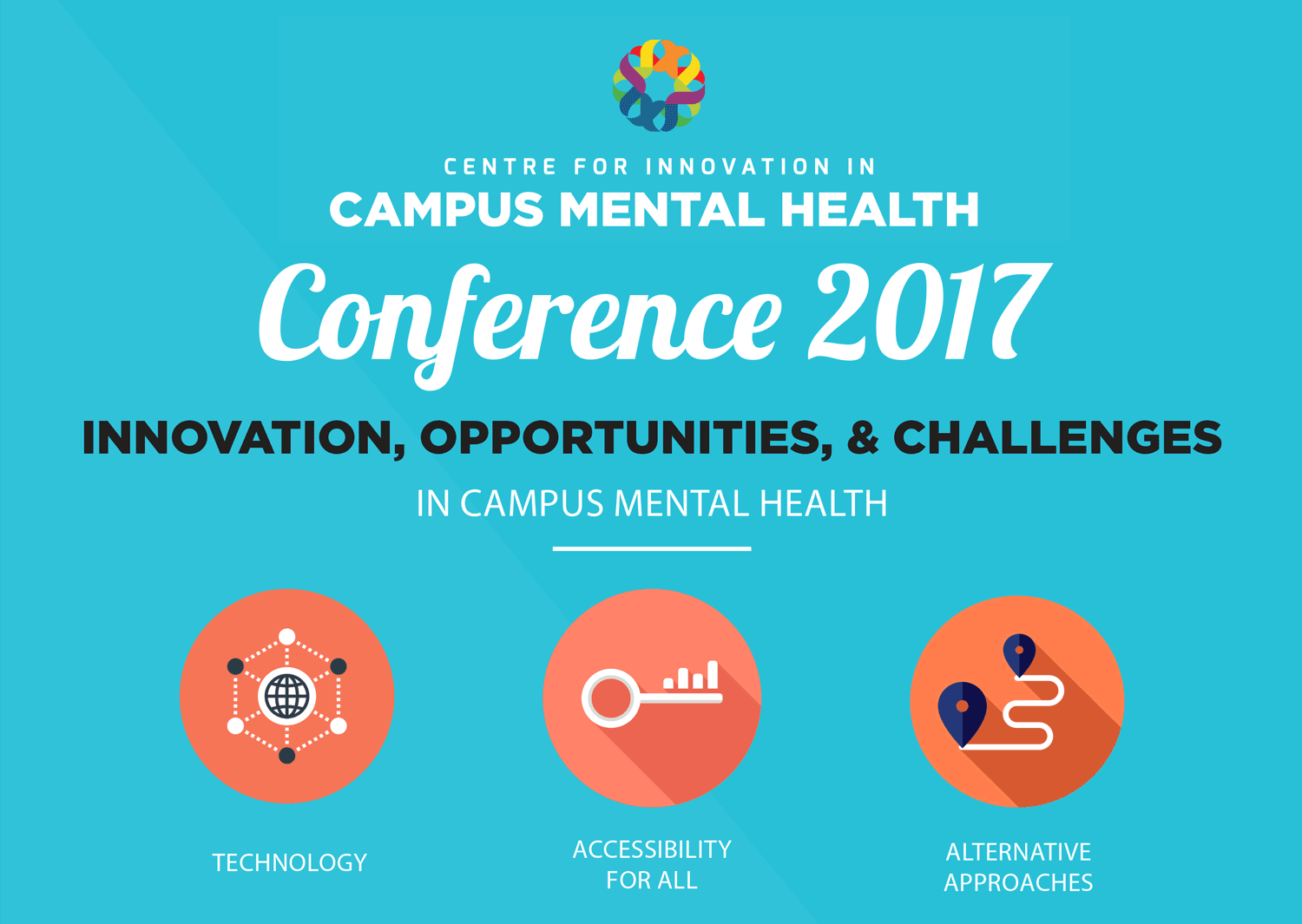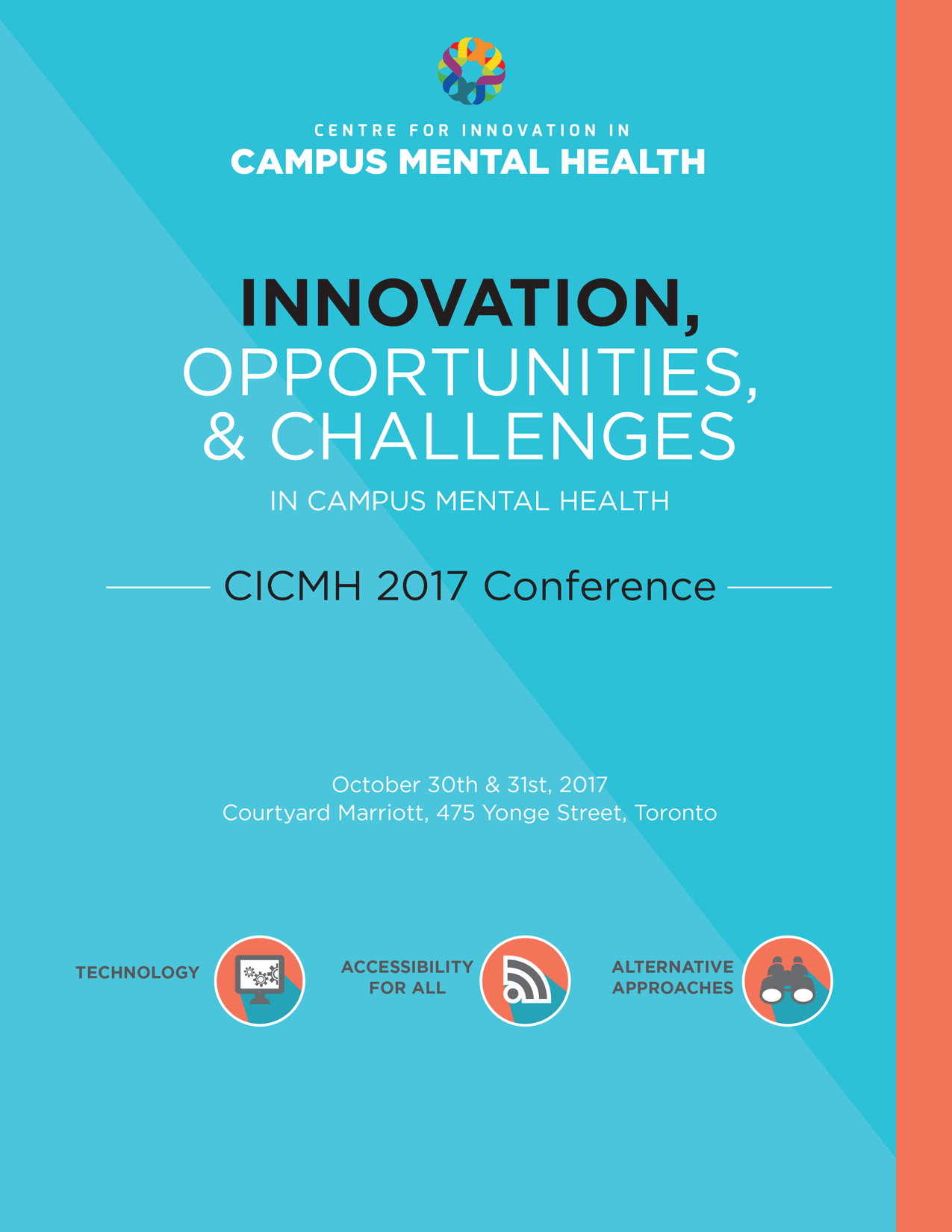Keynote Address by Dr. Peter Cornish
Stepped Care 2.0 – Scaffolding for Rapid Care Access in the Context of a Thriving Campus Community
Watch a recording of the session here
A1: Wellness in Two Worlds: A Holistic Approach to Supporting Indigenous Students
A2: Engaging Staff & Faculty in Campus-Wide Mental Health Initiatives
A4: Postsecondary Education Partnership –Alcohol Harms: Framework, Implementation and Data
B2: The Inquiring Mind: A New Program to Address Mental Health in Post-secondary Settings
B3: Engaging Students in Developing A Mental Health Strategy
C1: Advancing a Mentally Healthy Campus
C3: Implementing Stepped-Care 2.0 in Postsecondary Settings
C3-Implementing-Stepped-Care-2.0-in-Postsecondary-Settings.compressed
E1: A Post-Secondary Harm Reduction Based Approach to the Opioid Crisis




 Dr. Natasha Saunders is a general pediatrician in the Division of Pediatric Medicine at The Hospital for Sick Children, an Associate Scientist at the SickKids Research Institute, and an Adjunct Scientist at the Institute for Clinical Evaluative Sciences (ICES). A core focus of her research program relates to better understanding health outcomes, specifically mental health and injuries, of pediatric immigrants and identifying ways to improve access to care for these children. As a Principal Investigator with the Mental Health and Addictions Team at ICES, she worked as a co-author to create the 2017 Scorecard for the Mental Health of Children and Youth in Ontario.
Dr. Natasha Saunders is a general pediatrician in the Division of Pediatric Medicine at The Hospital for Sick Children, an Associate Scientist at the SickKids Research Institute, and an Adjunct Scientist at the Institute for Clinical Evaluative Sciences (ICES). A core focus of her research program relates to better understanding health outcomes, specifically mental health and injuries, of pediatric immigrants and identifying ways to improve access to care for these children. As a Principal Investigator with the Mental Health and Addictions Team at ICES, she worked as a co-author to create the 2017 Scorecard for the Mental Health of Children and Youth in Ontario. Dr. Peter Cornish is an Associate Professor and Director of the Student Wellness and Counselling Centre (SWCC) at Memorial University of Newfoundland. Dr. Cornish is a strong advocate for interprofessional collaboration and encourages the development of partnerships with a broad range of disciplines within the university and within the public health sector. His clinical and research interests include online mental health, stepped care programming, mental health service innovations, change management, interprofessional team functioning, interpersonal and group dynamics, wellness community development and gender issues. He is known for developing and implementing the Stepped Care model at Memorial University, which is a 9-step model of wellness service care and management with potential for electronic medical record integration and commercialization.
Dr. Peter Cornish is an Associate Professor and Director of the Student Wellness and Counselling Centre (SWCC) at Memorial University of Newfoundland. Dr. Cornish is a strong advocate for interprofessional collaboration and encourages the development of partnerships with a broad range of disciplines within the university and within the public health sector. His clinical and research interests include online mental health, stepped care programming, mental health service innovations, change management, interprofessional team functioning, interpersonal and group dynamics, wellness community development and gender issues. He is known for developing and implementing the Stepped Care model at Memorial University, which is a 9-step model of wellness service care and management with potential for electronic medical record integration and commercialization.